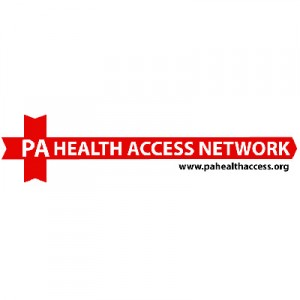
Harrisburg, PA – Pennsylvania should establish a competitive health insurance marketplace that gives consumers more control, quality choices and better protections when buying health coverage, advocates with the Pennsylvania Health Access Network (PHAN) said at a hearing today.
Pennsylvania is one of several states considering the creation of an insurance marketplace, or exchange — a key component of the Patient Protection and Affordable Care Act of 2010. The state Insurance Commissioner has held three hearings, including one near Harrisburg today, to gather public input on what the state’s new health insurance marketplace should look like.
At today’s hearing, Sharon Ward, Director of the Pennsylvania Budget and Policy Center and a member of PHAN, outlined a vision for an insurance marketplace in Pennsylvania that protects consumers and promotes competition.
“A competitive marketplace will connect consumers with high quality health coverage that meets their needs and budgets,” Ward said. “It will level the health care playing field by allowing individuals and small businesses to leverage their collective buying power and drive down costs.”
The marketplace, which must be up and running by 2014, will feature an easy-to-use web site allowing people to compare health insurance plans. It will also connect middle-class consumers with federal assistance to purchase coverage.
Under the Affordable Care Act, states have the choice of creating their own insurance marketplaces or allowing the federal government to establish one for them.
The marketplace is purely voluntary for people who lack insurance, have lost their coverage or are unhappy with the policy they have. Those who are satisfied with their insurance can keep it. Small businesses can use the marketplace to purchase affordable health coverage for their employees.
“The creation of a Pennsylvania Health Benefits Exchange offers a way forward and a starting point to create a more just and compassionate health care system,” said Rev. Amy Reumann, Director of the Lutheran Advocacy Ministry in Pennsylvania, who also testified Tuesday.
“An Exchange built upon convictions about human wholeness and health shared by many faith traditions can help to build a system that will serve those left out and left behind from our current health care system,” added Rev. Reumann, a member of PHAN.
Athena Ford, the State-Wide Education and Implementation Coordinator for the Philadelphia Unemployment Project and a PHAN member, said it is critical that the insurance marketplace incorporate protections for consumers, including access to health care navigators.
“Navigators cannot perform their duties effectively unless they are trusted by the communities they seek to serve,” Ford said. “Navigators and consumer assistance programs that are currently operating in Pennsylvania have been cultivating relationships and building a reputation as a reliable source of information for well over a decade.”
Ward added that the marketplace should also protect consumers from unjustified rate hikes and other insurer abuses.
“A competitive, transparent marketplace will be good for consumers, good for businesses and good for Pennsylvania,” she said.
PHAN has identified three priorities for Pennsylvania’s insurance marketplace:
1. The marketplace should be competitive and consumer-driven.
The marketplace should have a governing board that includes patient voices, small businesses and insurance experts who don’t work for the industry to ensure that it makes smart decisions to improve quality and efficiency. The board should have the authority to negotiate with insurance companies to secure the best prices for consumers and to protect consumers against insurer abuses, like denial of care or unjustified rate hikes.
2. The marketplace should be accountable, transparent and easy to use.
The marketplace should use clear, jargon-free language to describe insurance plans and provide well-trained “navigators” who can help individuals and families decide which coverage option is best for them. To protect against conflicts of interest, the governing board should exclude any insurance industry representatives and brokers that stand to profit from enrollment in the marketplace.
3. The marketplace should provide high-quality affordable health care options.
The marketplace should adhere to strict quality standards and prevent insurers from raising premiums unreasonably. The marketplace will also be tasked with providing income-based tax credits to working and middle-class families. As such, it should ensure that all eligible individuals and families are protected financially by limiting co-payments, deductibles and other cost-sharing based on a family’s income.
The Pennsylvania Health Access Network (PHAN) is a coalition of 50 groups from across the Commonwealth working to improve access to quality health care through the expansion of health insurance coverage. To learn more about PHAN’s work on insurance marketplaces, go to http://bit.ly/PHAN-Insurance-Marketplace.






















